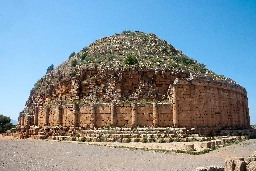Well this has been an interesting rabbit hole. It seems there are similar sites all around the Rhodope mountains in this area of Bulgaria. One of the largest and most studied is Глухите камъни (Gluhite Kamani or The Deaf Stones) further to the east. It has a Wikipedia page but only in Bulgarian. Excavations at that site starting in 2008 suggest the most active period was around the 1st millennium BCE, probably by Thracians. More can be found by searching for the site name and the archaeologists Georgi Nehrizov and Doychin Grozdanov. One of their preliminary conclusions was that the area was used more for ritual drinking and feasting rather than permanent habitation.
The niches are similar in opening shape (trapezoidal) to larger rock-cut tombs in the area. It has been speculated that they may have been to hold the remains of people who weren’t interred in the larger tombs.
There are also theories connecting them to somewhat similar rock-cut features in Anatolia, thought to be associated with a cult of the Mountain Mother (Kybele) and carved by Phrygians. Thracians are said to have come from Anatolia originally as well so there could be a connection.
This is why nobody in Bulgaria argues with a pigeon.
The Wikipedia entry just says ‘the site seems to have had some religious significance’ which seems like a bit of a cop out to be honest


